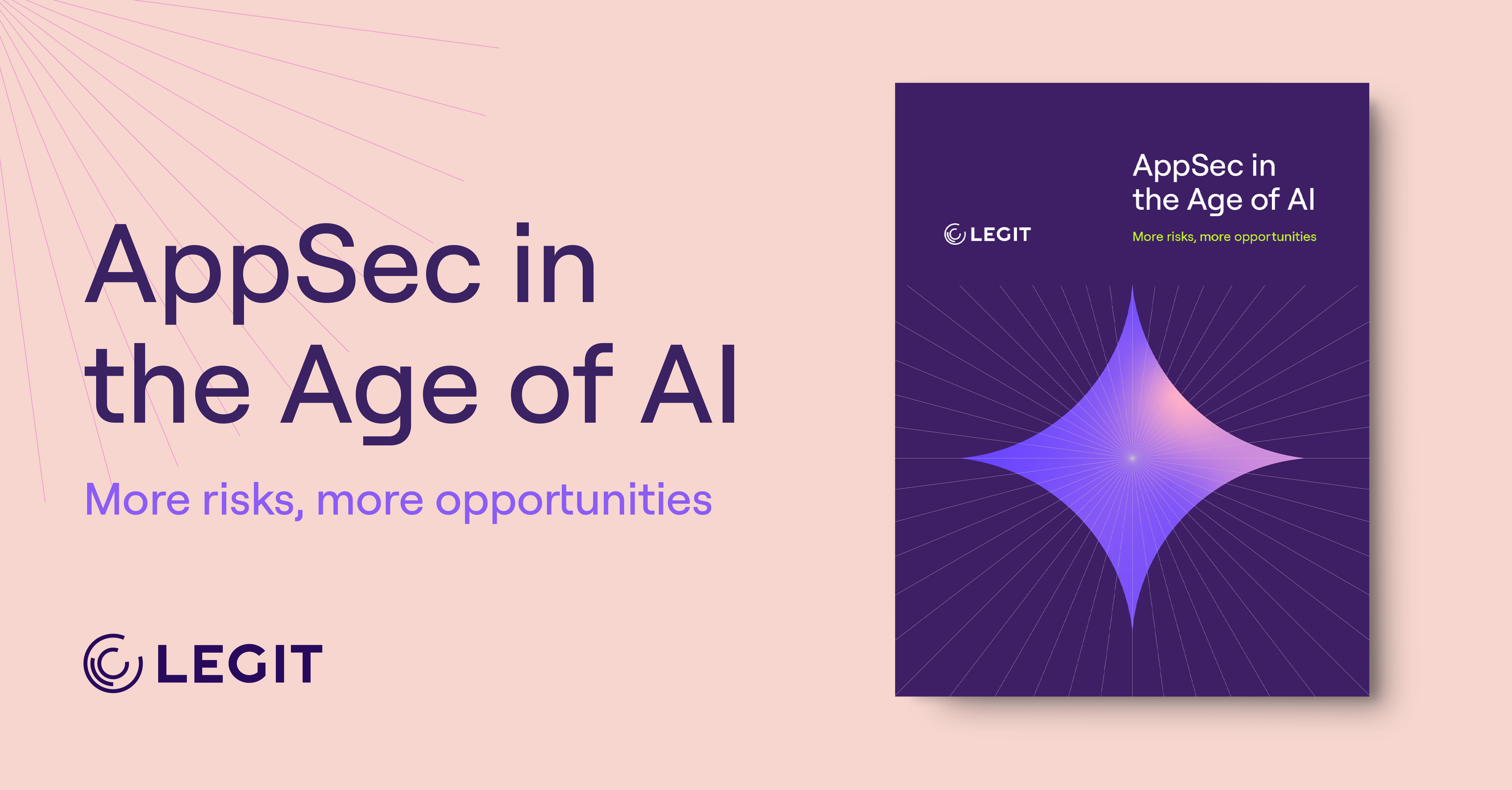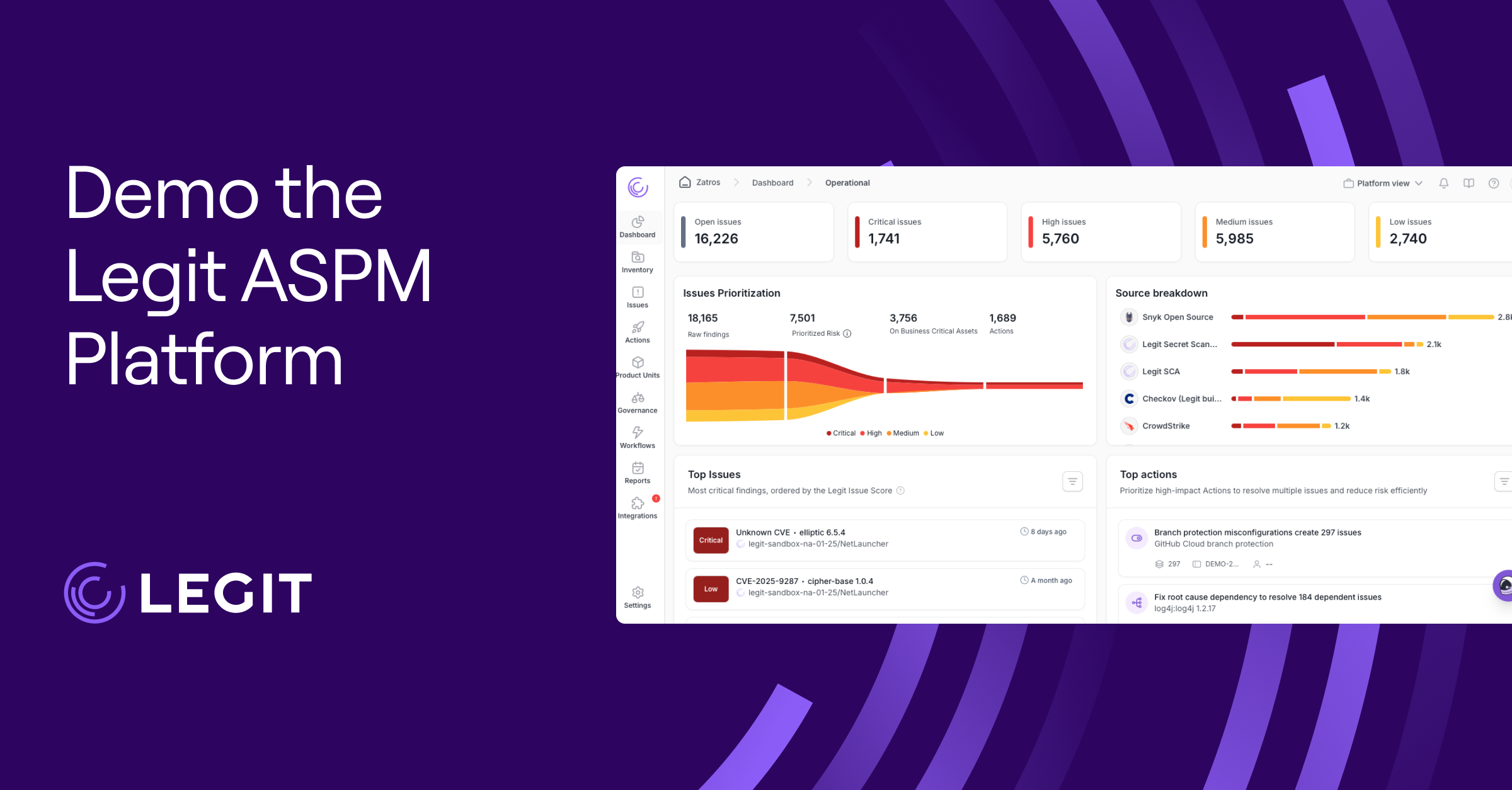AI code generation is changing how developers approach their work. Modern code completion AI tools like GitHub Copilot and ChatGPT offer faster development cycles, improved productivity, and the ability to automate repetitive tasks.
But even the best AI for code solutions comes with challenges. Security vulnerabilities and unreliable code outputs can easily slip into projects without proper oversight. Additionally, the emergence of AI jacking and other sophisticated attack vectors has made security considerations even more critical.
Use AI code the right way. Here’s a guide to AI code generation, how it works, and its key benefits and challenges.
What Is AI Code Generation?
AI code generation uses machine learning models to write code according to your instructions. You give the AI a description of what you want the code to perform, and it generates text for you. These tools function as intelligent coding assistants, automating repetitive tasks, completing boilerplate code, and minimizing the time you spend searching for online solutions.
AI code generation is also about improving accuracy and reducing errors. Many tools identify bugs, suggest optimizations, and even run test scenarios at scale. This means you can focus more on problem-solving and innovation while AI handles basic coding.
How Does AI Code Generation Work?
AI code generation relies on advanced large language models (LLMs) trained on massive datasets of publicly available code. These models use natural language processing (NLP) to interpret your instructions and deep learning algorithms to generate contextually accurate code suggestions.
When you describe what you want—like "Write a JavaScript function to validate an email"—the AI programming tool analyzes your input, learns from vast amounts of code, and uses this knowledge to generate an output that matches your intent. And the more you use AI tools, the more they adapt to your coding style and learn to identify potential bugs.
Are There Any AI Code Generation Security Risks?
Research shows that, unfortunately, AI code hosts common security vulnerabilities. Research from Stanford University shows a significant portion of AI-generated code contains security bugs.
That’s why modern development environments and security tools have sophisticated AI detection and scanning capabilities to ensure code quality. It’s important to implement comprehensive security measures for AI-generated code to protect against potential vulnerabilities.
How Does AI Code Generation Differ From Low-Code Development?
AI code generation and low-code development may seem similar on the surface because they both simplify and accelerate software creation. But they serve distinct purposes and target different audiences.
AI code generation writes code snippets, functions, or entire programs based on natural language prompts or existing code context. It understands your instructions and produces tailored code suggestions to fit your project’s needs.
Low-code development involves building applications using pre-built components, drag-and-drop interfaces, and minimal manual coding. Non-developers or teams with limited programming expertise often use it for rapid application development.
While AI code generation excels in scenarios requiring custom scripts or optimization, low-code platforms create functional applications quickly without requiring extensive knowledge of programming languages. And the two approaches aren’t mutually exclusive: You might use AI-generated code within a low-code platform to address specific requirements, combining the strengths of both tools to maximize efficiency.
AI Code Generation Benefits
AI code generation is transforming how professionals approach development. These tools save time, reduce cognitive strain, and enhance team collaboration.
Here are some key ways AI code generation benefits your workflow:
- Boosts developer productivity: By automating repetitive coding tasks and generating boilerplate code, AI-generated code frees up time to focus on tasks that require a human touch. With this improved efficiency, you achieve faster project timelines and higher output.
- Alleviates developer’s mental load: Repeatedly tackling mundane tasks can quickly lead to burnout. AI assistants reduce this burden by providing real-time code suggestions and handling repetitive coding challenges, allowing teams to stay sharp and focused on creative problem-solving.
- Accelerates debugging and troubleshooting: AI tools analyze code, identify errors, and suggest fixes in real-time. This expedites debugging and reduces the likelihood of missing difficult-to-identify vulnerabilities.
- Facilitates consistency across teams: AI-generated code often follows standardized patterns and best practices, creating consistency across your team’s work. This makes it easier to understand, maintain, and collaborate on projects, even as teams grow or shift members.
AI Code Generation Risks
As these tools become more prevalent in development, understand the risks of generative AI and LLM. Here are some key concerns:
- Code reliability: AI-generated code can contain errors, bugs, or vulnerabilities, even if it looks functional. Without proper testing and code reviews, these flaws can lead to larger issues later on.
- Risk of technical debt: Relying too heavily on AI for quick fixes or repetitive tasks might result in code that works now but creates long-term maintenance challenges. Over time, this technical debt can slow down development and increase costs.
- Security vulnerabilities: AI models might unintentionally introduce vulnerabilities into your code, like poorly implemented authentication or exposure to common exploits.
- Loss of developer control: Over-reliance on AI tools might reduce your hands-on understanding of your codebase, making debugging, optimizing, or scaling the code harder.
Best AI Code Generation Tools
Each of the best AI tools offers unique capabilities to streamline your development workflow. Here are some of the most popular options to explore:
1. GitHub Copilot
GitHub Copilot, which GitHub and Microsoft developed, acts as an AI pair programmer directly in your integrated development environment (IDE). Built on OpenAI Codex, Copilot excels at code completion and integrates directly into popular environments like VS Code and Visual Studio.
GitHub Copilot generates code snippets, suggests entire functions, and provides context-aware fixes based on your prompts. It also supports multiple programming languages, making it a versatile tool for beginner and experienced developers.
2. ChatGPT
While primarily known as a conversational AI, OpenAI's ChatGPT is highly effective for code generation and problem-solving. Describe your coding goals in plain language, and ChatGPT will write AI code, explain snippets, or debug errors. Its versatility across various languages makes it an excellent assistant for coding tasks. It's also available both through the web interface and API integration.
3. Tabnine
Tabnine uses machine learning models to deliver intelligent auto-complete capabilities to predict your next line of code. Its predictive capabilities reduce the time spent on repetitive tasks, allowing you to focus on building functionality. And this tool integrates seamlessly into popular IDEs and supports various programming languages.
4. Amazon CodeWhisperer
Amazon CodeWhisperer is perfect for cloud developers, offering real-time AI code suggestions optimized for AWS. While it’s meant for AWS, Amazon CodeWhisperer supports general programming tasks across many languages. It’s also free for individual use.
5. Code Llama
Code Llama from Meta is an open-source AI model tailored specifically for code generation tasks. It comes in various variants and sizes and supports multiple programming languages. Code Llama’s open-source nature allows for greater flexibility and customization, making it suitable for direct use and further development.
Additional Notable Tools
Here are some other good options:
6. Google's AlphaCode: AlphaCode specializes in solving competitive programming problems.
7. Anthropic's Claude: Claude is Anthropic's AI assistant, with strong coding capabilities across multiple languages.
8. Replit's Ghostwriter: Ghostwriter is an integrated AI coding assistant designed specifically for the Replit environment.
While all of these tools can handle multiple programming languages, they have strengths in certain languages, use cases, and frameworks. As these technologies rapidly evolve, consult each tool's latest documentation for the most up-to-date features and capabilities.
Protect Your Code Generation With Legit Security
Protect your development environment with Legit Security's comprehensive visibility and AI discovery capabilities. Bridge the gap between security and dev by uncovering where and when AI code is used and take action to ensure proper security controls are in place—without slowing software delivery.
By gaining a full view of the application environment, including repositories using LLM, MLOps services, and code generation tools, Legit Security offers the context necessary to understand and manage an application’s security posture. It provides guardrails to prevent the deployment of vulnerable code to production, including that delivered via AI tools.
Modernize your security strategy with Legit Security. Book a demo today.
Download our new whitepaper.


